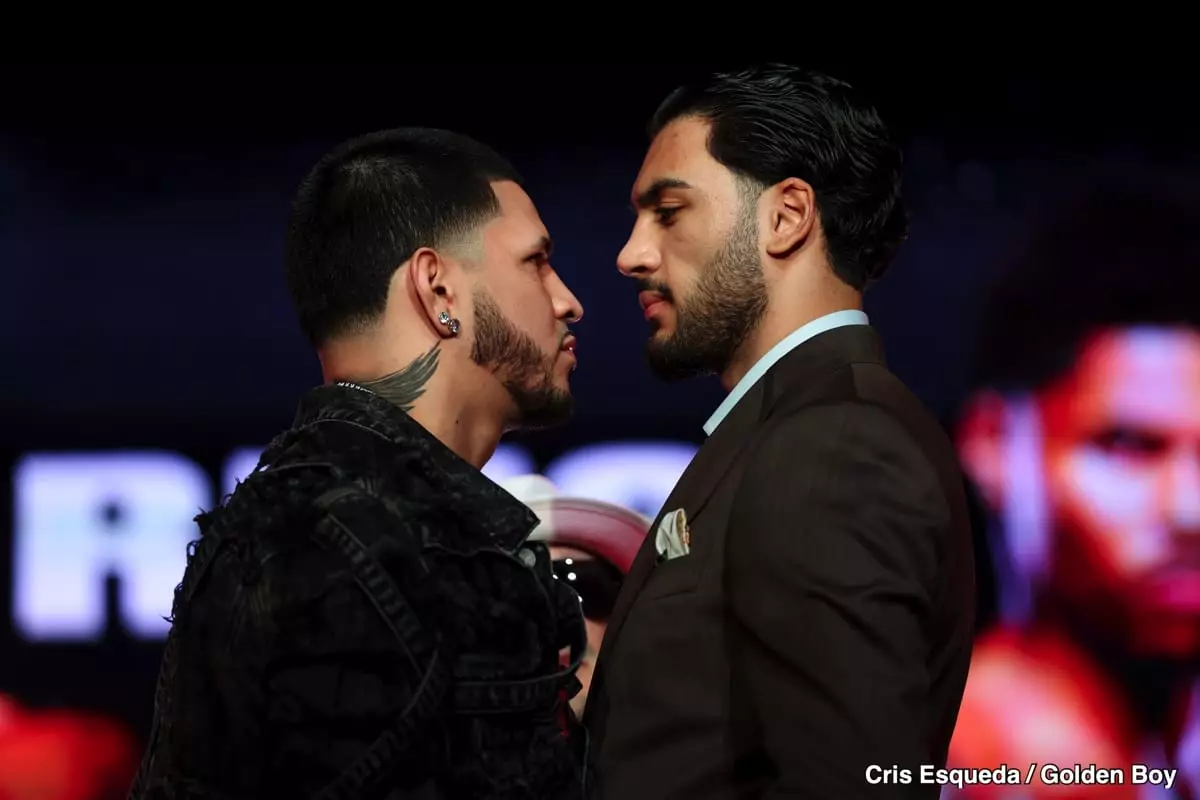In the fiercely competitive realm of professional boxing, emerging fighters often find themselves caught between aspirations and the political machinations of promoters and managers. Edgar Berlanga exemplifies this struggle perfectly. Despite his undeniable talent and desire for high-profile bouts, Berlanga appears marginalized in the ongoing power dynamics, especially concerning Turki Alalshikh’s influence and preferences. While Berlanga maintains a facade of indifference to Turki’s openly biased comments supporting Hamzah Sheeraz, a deeper analysis suggests a complex behind-the-scenes battle for legitimacy and dominance. Berlanga’s statements reveal not just confidence but a frustration lingering beneath the surface—a longing to break free from the constraints that prevent him from facing top-tier opponents.
His declared intention to “handle his business” and “shut everybody’s mouth” signals a fighter determined to assert his worth, yet it is painfully evident that systemic hurdles and promotional politics are hampering his ascent. Berlanga’s vocal rejection of Turki’s plans demonstrates a desire to challenge the established order, even if it means risking professional isolation. There’s an undeniable raw energy in Berlanga’s rhetoric, hinting at a hunger to prove himself outside the shadow of political favor. His critique of Turki’s support for Sheeraz indicates that Berlanga perceives the current landscape as One where favoritism reigns, undermining fair competition and personal ambition.
Promotional Power Plays and Limited Options at 168
The landscape at super middleweight is, frankly, barren of the kind of marquee matchups that would catalyze Berlanga’s career. With big names at 168 either unavailable or compromised—such as the suspended Jaime Munguia—Berlanga’s options appear limited. His primary targets include Jaime Munguia and potentially moving up to light heavyweight, where proliferating opportunities with champions like David Benavidez could finally give him the platform he craves. However, these ambitions are fraught with obstacles, including suspensions, failed drug tests, and the often arbitrary decisions by promoters like Turki Alalshikh, who seems more invested in orchestrating fights for marketability rather than merit.
Berlanga’s candid outspoken tone underscores his frustration with the current scenario. He dismisses Turki’s plans as irrelevant, asserting that he is a “boss” who should be prioritized for big fights. Yet, this bravado masks the underlying reality that fighters often have little control over their destiny—unless they are backed by significant promotional power or public demand. Berlanga’s recognition of these barriers, coupled with his unwavering ambition, paints a picture of a boxer frustrated but unbroken—ready to seize the opportunities that may or may not arise. His mention of potential bouts with fighters like Munguia or Benavidez shows that he is not merely biding time but actively strategizing to shatter the current complacency.
The Power of Self-Belief in a Shifting Boxing Landscape
What is most compelling about Berlanga’s stance is his fierce self-belief and refusal to be sidelined. His comments articulate a clear message: regardless of Turki’s political play, he intends to make noise and force the hand of promoters. Berlanga’s rhetoric about “making Turki work for me” encapsulates the fighter’s desire to leverage his talent and reputation as bargaining chips, perhaps even challenging the existing promotional hierarchy.
In the larger perspective, Berlanga’s situation exemplifies the ongoing struggle within boxing to ensure that talent, not politics, determines a fighter’s trajectory. His confidence, while perhaps bordering on arrogance, is an essential trait for fighters seeking to carve out their place amid systemic obstacles. Berlanga’s unwavering drive to fight for recognition, coupled with his willingness to challenge the status quo, positions him as a symbol of the fighter’s fight against exploitation and favoritism in the sport.
Ultimately, Berlanga’s narrative is about much more than just a single fight. It’s about asserting his right to compete on his own terms, demanding respect in a landscape often dictated by powerful interests rather than merit. His journey will be a true test of whether raw talent and relentless self-belief can override the influences of promotional machinations and political favoritism that continue to dominate the boxing world.

